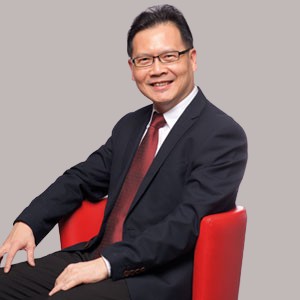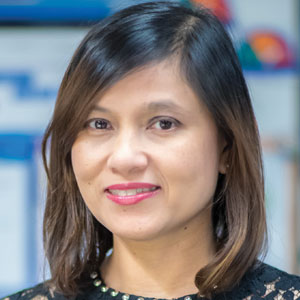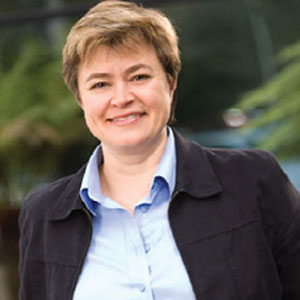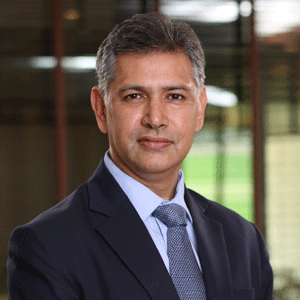THANK YOU FOR SUBSCRIBING

Dekatku: Where GIS Meets Augmented Reality

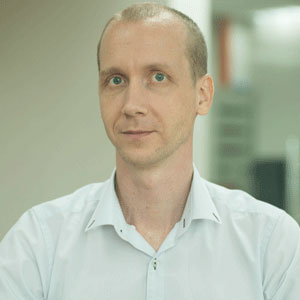 Bjorn Karge, Director of Technology
Bjorn Karge, Director of TechnologyThe technological advancements of the last few years have taken cartography to far greater heights than were imaginable just a couple of decades ago. Borrowing from the evolution in digital technology, mapping has been rendered a layman’s craft, nullifying the strenuous effort that used to be put into reading, comprehending or marking down co-ordinates that pinpoint locations.
Geographic Information Systems (often abbreviated as GIS) would have been considered the pinnacle of mapping that our modern day advancements would allow us to fathom. GIS in its current form relays terrain detail into systems capable of processing them and transforming them into digital data which can be projected into apps and systems accessed through devices such as smartphones, tablets and computers. This system’s impact has been felt in many vital aspects of our day to day life such as travel, accommodation, delivery services and many more, and as a result has bloomed into a major industry today. A key purveyor of GIS solutions in the Asia Pacific region is Kuala Lumpur, Malaysia based organization, Dekatku. Conceived in 2004 in Australia, Dekatku was spun out of the DMSBT Group, who had the prime distinction of being amongst the very first Google Enterprise Partners outside the U.S.A, offering licensing, consulting and integration services for Google Maps, Google Apps and Google Search Appliance.
A Change in Momentum for Service Delivery in the APAC
DMSBT’s ascent into the Singapore, Hong Kong and Malaysian markets over the years eventually led the company’s focus to tilt more towards Asia. This then led to the Asian arm of DMSBT being spun off and shortly there after rebranded as Dekatku. In line with the spin off, Dekatku became independent, offering consulting, outsourcing, systems integration and creative agency services.
Dekatku’s contributions to the IT industry in the APAC is largely disposed toward the provision of GIS services to organizations that seek to mobilize their business and offer services at the end consumers’ doorsteps. “Outside the enterprise, location is a hot topic with startups and enterprises alike - we’ve seen companies who want to be “the uber of” everything from getting your laundry done to doctors,” says Bjorn Karge, Director of Technology, Dekatku Sdn Bdn. Location indeed plays a pivotal role in most business endeavours today. Most of this of course has been driven by a general inclination towards services delivered at door steps which has now gone from being a just trend started by a handful of multinational corporate giants to a basic mandate of our day to day lives. As a majority of retail organizations today are buying into this concept of door to door services with a cluster of products at their disposal, understanding the consumers’ needs, their disposition towards the products as well as the relevance of the products themselves in their lives all come into the picture. With such odds stacked up the spotlight rarely shifts away from the vast reaches and performance competence of GIS as a market research and analytics tool. The percentage of the average organisations data from which valuable insights can be inferred from location and geographical information is approximately 80, yet this information is rarely exploited to its fullest potential. Today this data serves as a differentiator in comprehending what parameters define various markets and how to optimize business to company with them.
Dekatku’s endeavours in the Asia Pacific are largely inclined towards this delivery of geospatial technology based solutions to industries such as financial services, telecommunications, logistics, utility agriculture and many more.
Taking GIS to Newer Dimensions with Augmented Reality
The services offered by Dekatku to the verticals it serves are manifold and are mostly associated with research and analytics. Among these, the one that stands out the most is the technology that captures the awe of many as it toys with our senses and manipulates the very fabric of our reality to create illusions that seem just as real.
“Augmented reality (AR) is a live, direct or indirect, view of a physical, real-world environment whose elements are augmented by computer-generated elements such as sound, video or graphics, ”defines Bjorn whose services at Dekatku are predominantly geared to this domain. Dekatku’s foray into the realm of Augmented Reality came to fruition after the launch of the AR platform for GIS dubbed ‘Phosphero’. Phosphero in its practical application allows organisations to create experiences that augment the digital imagery created by built in cameras in smart phones with digital content. This of course is triggered by the users’ locations and their actions. The digital content displayed there in usually includes virtual signposting, promotional offers, gamification and real time/space route optimization, amongst others. The possibilities here are endless. The application can be used in a wide variety of potential scenarios for enterprise use from simple marketing and sales solutions, or interactive media already used by clients, to real-world AR Dashboards and control centres for telcos, banks, transportation and more.
Such a leap in technology is surely bound to provide organizations with the upper-hand in leaping ahead of their competition and establishing a niche of their own. To this end GIS and AR create the perfect cohesionas huge boundaries of the business world are broken down and new frontiers of enterprise are explored. Dekatku’s current experiences with the provision of GIS services coupled AR have included projects with banks, utility providers, major brands and telco companies across the APAC, however plenty of time is dedicated by their team for R&D in taking this technology to marketing, engineering, education and consumer facing applications. The motivation for this push is the simplicity that revolves around this application. “There are only two things that a user needs to have an AR experience - a reasonably modern smartphone and a good internet connection,” says Bjorn.
The Right Kind of Expertise for GIS in the APAC
Dekatku’s 10 years of experience working with GIS and web mapping technologies enabled them to develop a considerable understanding of spatial knowledge. This also provided the company with enough resources to develop custom GIS solutions with emphasis on user experience and visual interaction, which of course eventually led to their innovation with AR. Dekatku’s goal all along has been to deliver products that are both cost effective and user friendly. The company has always sought to stray away from traditional GIS such as Small World and ESRI (which can be considerably more expensive and require highly skilled GIS professionals to function)and develop their own solutions which empower non-technical users to work with information ‘on map’ and create, share and collaborate on map, table and graph based views of data. This has been of vital importance to the Malaysian market where factors such as cost inertia and experience have all held back the adoption of mapping based solutions. Dekatku created a great change in the Malaysian GIS market by leveraging its various resources as well as expertise from industries abroad, where the technology is strengthened, and talent from local universities. The team’s experiences working with companies such as IBM, Hewlett Packard, KPMG, Deloitte, Qantas, Singapore Airlines, Air Asia, HSBC, Hong Leong Bank, Alliance Bank, SWIFT, Red Bull, the Australian Department of Defence, the Malaysian Department of the Environment, amply depicts the company’s proficiency in delivering complex mapping and big data projects.
Dekatku is ideally placed to become the provider of choice for Augmented Reality apps, products and services not only in Malaysia, but globally. In line with their global vision, Dekatku have just announced the commencement of a transition to a new global brand – QED. Dekatku has recently set up an office in Dublin, Ireland,to be the European hub of QED. This marks the start of its global proliferation, to be followed closely by the USA in the next two years.
The company also intends to improve its expertise in the field of AR to incorporate more advancements as technology grows in the coming years. “Given that AR pulls together mapping, big data, mobility and visualisation, we feel we have got all the ingredients for a huge paradigm shift in digital convergence, ” says Bjorn.
Taking GIS to Newer Dimensions with Augmented Reality
The services offered by Dekatku to the verticals it serves are manifold and are mostly associated with research and analytics. Among these, the one that stands out the most is the technology that captures the awe of many as it toys with our senses and manipulates the very fabric of our reality to create illusions that seem just as real.
“Augmented reality (AR) is a live, direct or indirect, view of a physical, real-world environment whose elements are augmented by computer-generated elements such as sound, video or graphics, ”defines Bjorn whose services at Dekatku are predominantly geared to this domain. Dekatku’s foray into the realm of Augmented Reality came to fruition after the launch of the AR platform for GIS dubbed ‘Phosphero’. Phosphero in its practical application allows organisations to create experiences that augment the digital imagery created by built in cameras in smart phones with digital content. This of course is triggered by the users’ locations and their actions. The digital content displayed there in usually includes virtual signposting, promotional offers, gamification and real time/space route optimization, amongst others. The possibilities here are endless. The application can be used in a wide variety of potential scenarios for enterprise use from simple marketing and sales solutions, or interactive media already used by clients, to real-world AR Dashboards and control centres for telcos, banks, transportation and more.

Phosphero in its practical application allows organisations to create experiences that augment the digital imagery created by built in cameras in smartphones with digital content
Such a leap in technology is surely bound to provide organizations with the upper-hand in leaping ahead of their competition and establishing a niche of their own. To this end GIS and AR create the perfect cohesionas huge boundaries of the business world are broken down and new frontiers of enterprise are explored. Dekatku’s current experiences with the provision of GIS services coupled AR have included projects with banks, utility providers, major brands and telco companies across the APAC, however plenty of time is dedicated by their team for R&D in taking this technology to marketing, engineering, education and consumer facing applications. The motivation for this push is the simplicity that revolves around this application. “There are only two things that a user needs to have an AR experience - a reasonably modern smartphone and a good internet connection,” says Bjorn.
The Right Kind of Expertise for GIS in the APAC
Dekatku’s 10 years of experience working with GIS and web mapping technologies enabled them to develop a considerable understanding of spatial knowledge. This also provided the company with enough resources to develop custom GIS solutions with emphasis on user experience and visual interaction, which of course eventually led to their innovation with AR. Dekatku’s goal all along has been to deliver products that are both cost effective and user friendly. The company has always sought to stray away from traditional GIS such as Small World and ESRI (which can be considerably more expensive and require highly skilled GIS professionals to function)and develop their own solutions which empower non-technical users to work with information ‘on map’ and create, share and collaborate on map, table and graph based views of data. This has been of vital importance to the Malaysian market where factors such as cost inertia and experience have all held back the adoption of mapping based solutions. Dekatku created a great change in the Malaysian GIS market by leveraging its various resources as well as expertise from industries abroad, where the technology is strengthened, and talent from local universities. The team’s experiences working with companies such as IBM, Hewlett Packard, KPMG, Deloitte, Qantas, Singapore Airlines, Air Asia, HSBC, Hong Leong Bank, Alliance Bank, SWIFT, Red Bull, the Australian Department of Defence, the Malaysian Department of the Environment, amply depicts the company’s proficiency in delivering complex mapping and big data projects.
Dekatku is ideally placed to become the provider of choice for Augmented Reality apps, products and services not only in Malaysia, but globally. In line with their global vision, Dekatku have just announced the commencement of a transition to a new global brand – QED. Dekatku has recently set up an office in Dublin, Ireland,to be the European hub of QED. This marks the start of its global proliferation, to be followed closely by the USA in the next two years.
The company also intends to improve its expertise in the field of AR to incorporate more advancements as technology grows in the coming years. “Given that AR pulls together mapping, big data, mobility and visualisation, we feel we have got all the ingredients for a huge paradigm shift in digital convergence, ” says Bjorn.

I agree We use cookies on this website to enhance your user experience. By clicking any link on this page you are giving your consent for us to set cookies. More info





